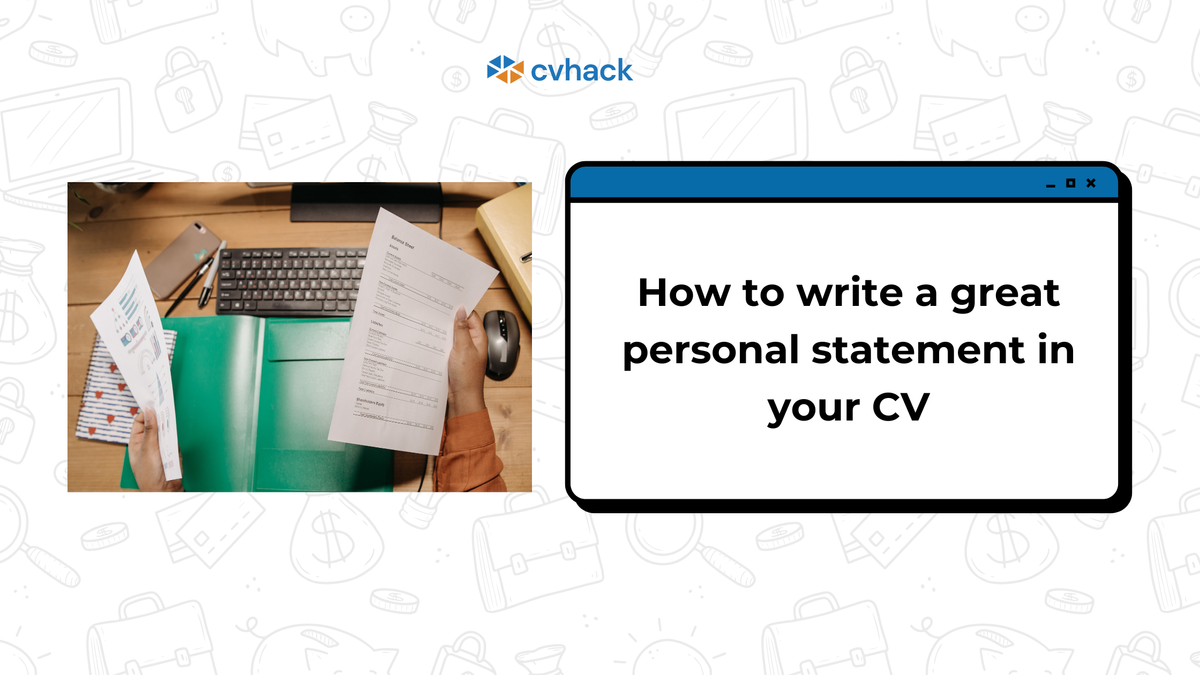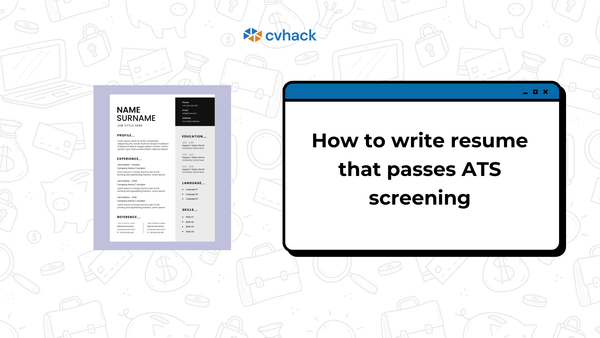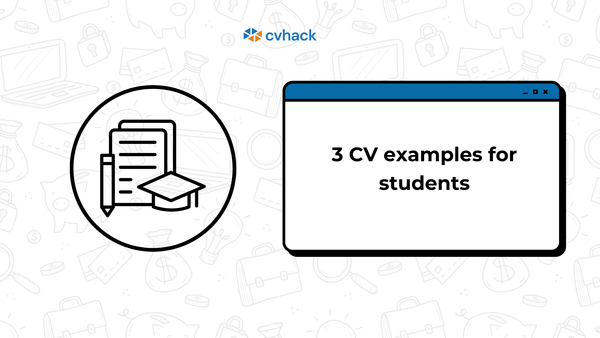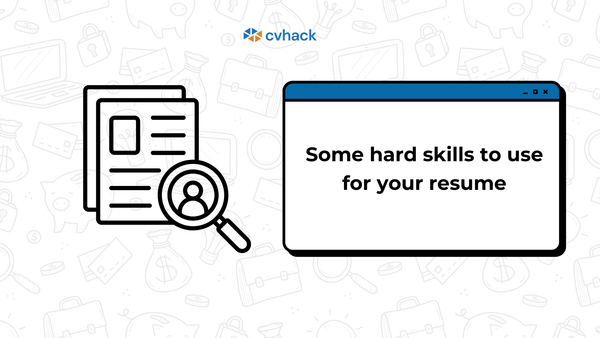How to Write a Great Personal Statement in Your CV/Resume
In today's competitive job market, your curriculum vitae (CV) and resume serve as your recruitment marketing tools.

Recruiters, such as hiring managers, often do not have much time to go through each applicant’s CV/resume in great detail (especially when they face many applications), so making an immediate impact is essential.
Want a powerful CV that impresses employers? Build one in minutes
The personal statement—typically the first section they see—plays a critical role in capturing their attention or interest and encouraging them to read further. When crafted effectively, it can serve as a strong hook that reflects your professionalism, confidence, and suitability for the role you're applying for.
What Is a Personal Statement for a CV/Resume?
A CV/resume personal statement is a brief descriptive passage placed at the beginning of a CV or resume. It provides a snapshot of an applicant’s career information such as professional job role, key skills or competencies, achievements and career objectives. Unlike a cover letter, which delves into specific experiences and motivations, the personal statement is a brief overview capable of enticing recruiters to read further.
Why Include a Personal Statement in a CV/Resume?
Including a personal statement in your CV/resume offers several advantages:
- Immediate engagement: It captures the reader's attention right away.
- Clear value proposition: It succinctly communicates what you bring to the table.
- Tailored fit: It allows you to align your skills and goals with the specific job you're applying for.
- Professional branding: It reinforces your personal brand and career narrative.
How To Write a CV/Resume Personal Statement
To craft an effective personal statement, consider incorporating the following key elements:
- Professional identity: Start with your current role or professional designation.
- Core competencies: Highlight your key skills and areas of expertise.
- Notable achievements: Mention significant accomplishments or experiences that demonstrate your capabilities.
- Career objectives: Conclude with a statement about your career aspirations and how they align with the prospective role.
Example"As a seasoned SEO content specialist with over 9 years of experience, I have successfully led SEO and content strategies that increased web traffic by 150% year-over-year. My expertise in data analytics and campaign optimization has driven measurable success results. I am seeking a dynamic content creation role in a forward-thinking tech company to further hone my skills and contribute to innovative projects."
Tips for Writing a Great Personal Statement for Your CV/Resume
- Keep it concise: Though there is no rigid word limit, aim for a maximum of 150–200 words. A brief, impactful statement is more effective and will save your reader’s time.
- Tailor to the job: Customize your personal statement for each application, reflecting the specific requirements and responsibilities of the role.
- Use active language: Employ strong action verbs to convey confidence and proactivity.
- Avoid sounding overconfident: Don’t underrate yourself, but avoid exaggeration.
- Edit and proofread: Ensure your statement (and the entire document) is free from grammatical, typing and logical errors.
Conclusion
A well-crafted personal statement is a powerful tool in your CV/resume arsenal. It can serve as an elevator pitch that offers recruiters a glimpse into your professional persona, encouraging them to explore you further. Take advantage of the outstanding features in CVHack to build professional CV/resumes and cover letters that give you an edge among recruiters.




